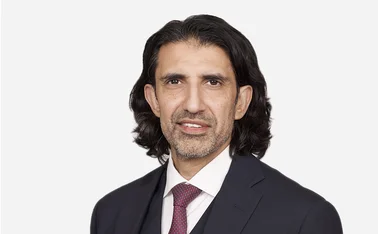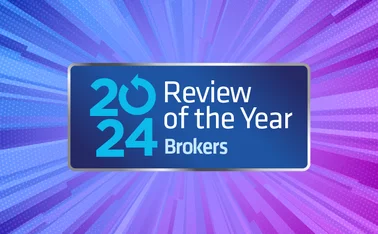
Blog: Five things that could determine whether BGL goes IPO or stays indie

The news that BGL Group is looking at the possibility of an IPO should not come as a surprise.
As long as I have been at Post it seems to have been linked with a trade sale, float or merger.
The only surprise might be that it has taken so long to get here.
In 2007 - at time when Aviva was hotly linked with the insurer - then then chief executive - now executive chairman - Peter Winslow told Post: "Any fast-growing company with a good reputation will of course attract interest, and we are no exception.
"It's flattering. But I believe being privately owned gives us our unique culture; fast paced and innovative, which comes from being an agile business. While I will never say never, I don't see us selling or floating the group."
Whilst three years later his line was that the company was "cash generative" and not looking to make transformational changes: "We intend to grow without going down those routes. One major issue with initial public offerings or private investment is funding - it isn't of interest to us," he added.
So what has changed and what will determine whether the firm decides to float or not?
1) The diversity story and following a well-worn path
Already the diversity of BGL has been mentioned as a potential key factor in its success or otherwise as a listed company.
As well as the broking and aggregator business (Compare the Market), BGL owns a law firm - Minster Law, a life insurance provider - Beagle Street and an affinity specialist in Junction.
Indeed the only thing that BGL does not seem to do is underwrite any insurance, having dumped its underwriting business Budget Insurance Company decades ago.
Looking at the other listed personal lines specialists such as Admiral, Direct Line and Hastings, it is evident that BGL shares a lot in common with them in that it is multi-brand, has a mixed portfolio and - in the case of Admiral and Direct Line - found that expanding overseas can be difficult and timely.
Any prospective shareholders will no doubt like the breadth of the business and the fact it does not carry risk might be seen as a positive too.
2) It has got its house in order
This time last year BGL sold the motorcycle business Bennetts to Saga in a £26m Cash deal.
And in December it announced plans to dispose of its Dutch comparison site Hoyhoy, whilst reaffirming its commitment to its French business Les Furets.
These now look like measured moves to make sure BGL was focused on a core set of businesses with which to sell itself to potential shareholders.
3) Innovation
Last year BGL Group opened a new office in London in the form of its Shoreditch digital, data, technology and media hub.
This was seen as a very deliberate move by the business to give it a decent sized footing in the heart of the fintech world in London. In hindsight it could also prove handy now for those investor briefings.
BGL has always - as Winslow pointed out above - prided itself on being fleet of foot and at the forefont of insurance innovation from aggregation to ABSs; having this new hub should help it retain that position by being able to attract talent who otherwise might not have considered Peterborough a natural landing spot.
The business now has to weigh up whether the benefits of an IPO in terms of generating cash for digital projects, outweigh any detriments in turns of if it will lose its independent spirit and speed in getting things to market.
4) The Timing
In January last year the CEO of BGL Matthew Donaldson was pleased as punch with what were record profits and revenues of £94m and £507m, up 6% and 13% respectively for the 12 months to 30 June 2014.
It will be interesting to see what the 2015 figures will be, but there has already been comments that BGL has decided to IPO now, before the sector sees the impact of the Government's plan to crack down on soft tissue claims, which could harm both the revenues for Minster Law, and the core motor business, as rates are expected to soften as a consequence.
There is also some scepticism as to the long term growth for aggregation with the likes of Moneysupermarket and Confused having tougher times of late in what is a very competitive space.
I am sure BGL is ready for these comments - and as pointed out above - will want to highlight its record in reinventing itself, diversity and investment in digital as plus points in determining its future value.
5) There is still money in personal line
Already today a value of £1bn has been placed on BGL by an analyst.
With that in mind it will be worth watching to see how much of those shares fall into the ownership of the firm's staff should the IPO go ahead.
And then all eyes will be on the Sunday Times Rich List given the business' founder Douw Steyn was ranked the richest individual in the world of insurance after accumulating a fortune of £700m.
More than Esure and Direct Line founder Peter Wood, (£577m), Admiral founder Henry Engelhardt, (£575m) and Hastings chairman Neil Utley (£300m) - all of whom have floated businesses that BGL will no doubt be measured against over the coming weeks and months before a decision is made to IPO, or not.
Only users who have a paid subscription or are part of a corporate subscription are able to print or copy content.
To access these options, along with all other subscription benefits, please contact info@postonline.co.uk or view our subscription options here: http://subscriptions.postonline.co.uk/subscribe
You are currently unable to print this content. Please contact info@postonline.co.uk to find out more.
You are currently unable to copy this content. Please contact info@postonline.co.uk to find out more.
Copyright Infopro Digital Limited. All rights reserved.
As outlined in our terms and conditions, https://www.infopro-digital.com/terms-and-conditions/subscriptions/ (point 2.4), printing is limited to a single copy.
If you would like to purchase additional rights please email info@postonline.co.uk
Copyright Infopro Digital Limited. All rights reserved.
You may share this content using our article tools. As outlined in our terms and conditions, https://www.infopro-digital.com/terms-and-conditions/subscriptions/ (clause 2.4), an Authorised User may only make one copy of the materials for their own personal use. You must also comply with the restrictions in clause 2.5.
If you would like to purchase additional rights please email info@postonline.co.uk








